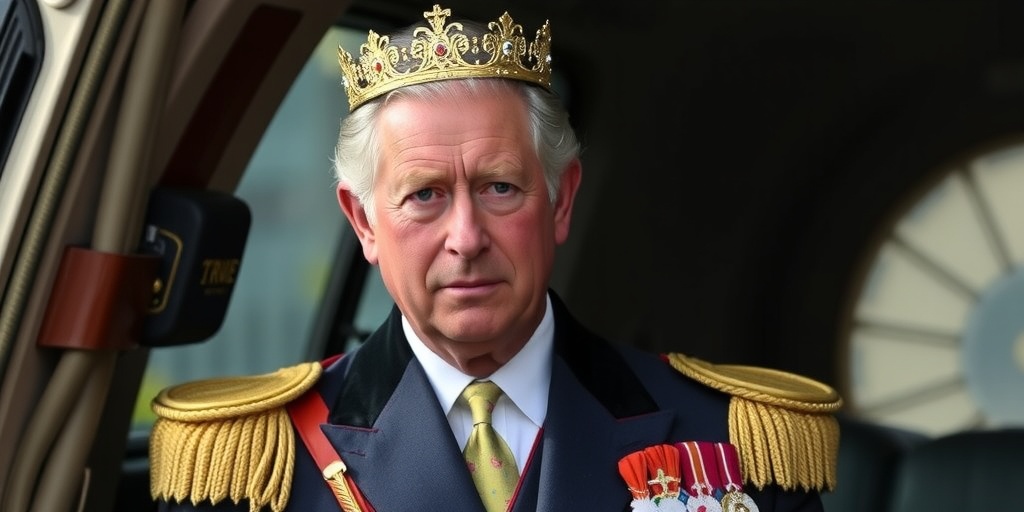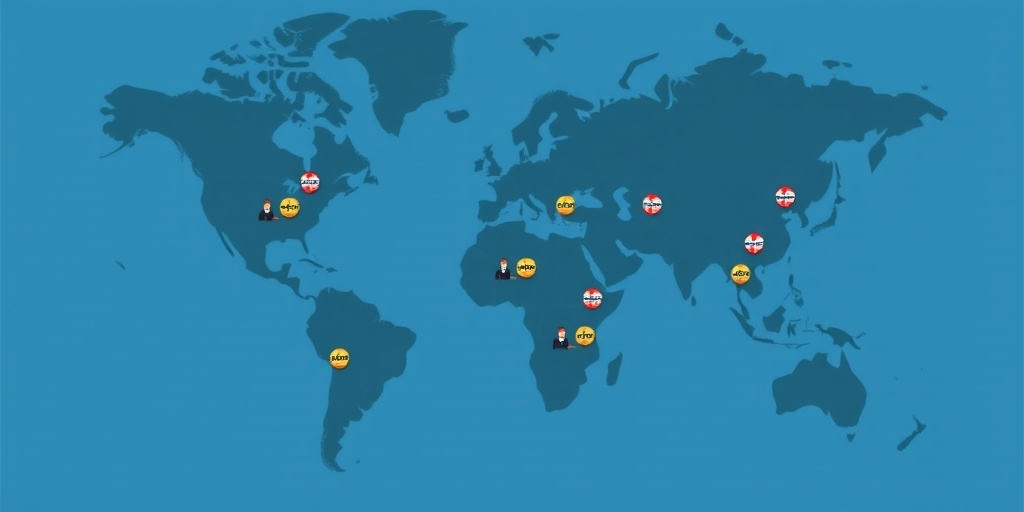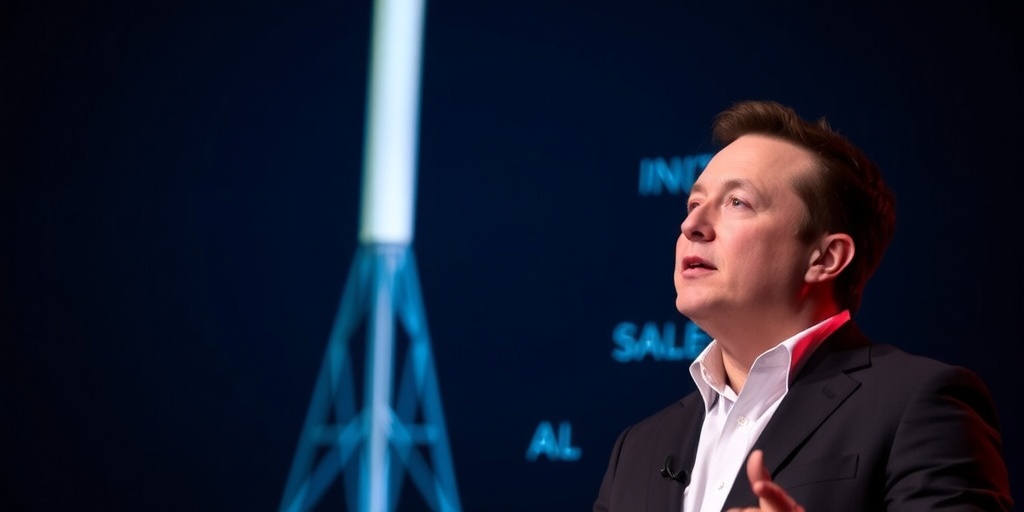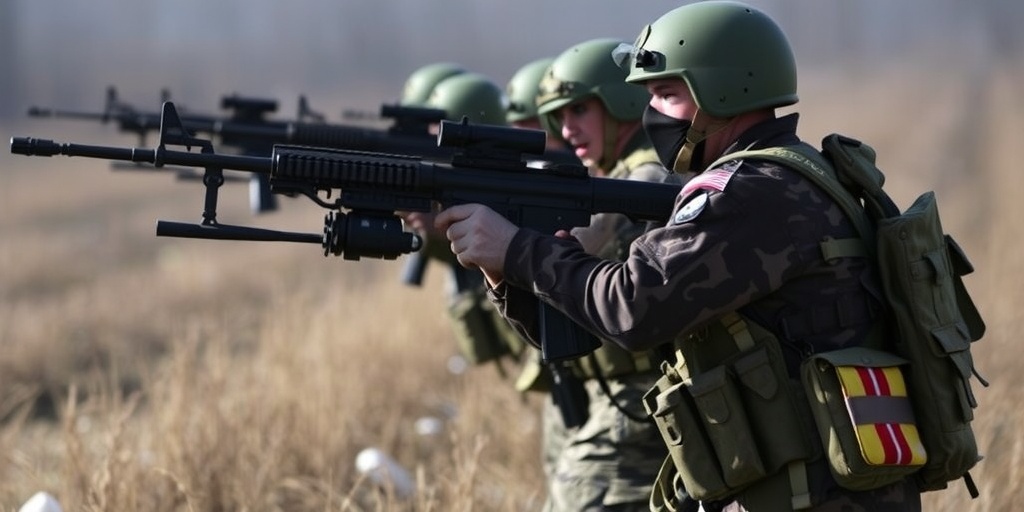Now Reading: King Charles Navigates a Delicate Role in the Trump Era
-
01
King Charles Navigates a Delicate Role in the Trump Era
King Charles Navigates a Delicate Role in the Trump Era

King Charles III Engages in Diplomatic Activities Amidst Controversial Political Climate
In a remarkable display of royal duty and engagement, King Charles III took to the skies, flying by helicopter to the H.M.S. Prince of Wales stationed in the English Channel on Tuesday. This visit had significant implications as the king mingled with sailors and observed fighter jets taking off from the deck of the Royal Navy aircraft carrier. It appeared to be a much-needed diversion from his increasingly complex social and political engagements.
Over the span of merely five days, King Charles extended a rare invitation to former President Donald Trump for an anticipated second state visit to Britain. Shortly thereafter, he hosted two prominent leaders with contrasting views on international issues: President Volodymyr Zelensky of Ukraine and Prime Minister Justin Trudeau of Canada, at his Sandringham estate northeast of London.
These invitations, while not overtly political in nature, have plunged the 76-year-old monarch into a diplomatic whirlwind that is seldom seen from a British sovereign. The realm of constitutional monarchy in Britain traditionally places political actions in the hands of the government. Nevertheless, the king’s recent activities have drawn significant attention amid the evolving landscape of international relations.
King Charles’s invitation to Donald Trump was delivered with considerable fanfare by Prime Minister Keir Starmer in the Oval Office. However, the atmosphere surrounding this invitation shifted dramatically. The day after the cordial meeting—where Trump and Starmer discussed various topics—President Trump clashed with President Zelensky regarding American support for Ukraine. This discord has sparked backlash against the state visit invitation, prompting calls from lawmakers and critics alike to reconsider the decision as a means of demonstrating Britain’s discontent with the former president and showing solidarity with Ukraine.
In what many view as a significant gesture of goodwill, King Charles later hosted President Zelensky at Sandringham after the Ukrainian leader attended a key summit focused on his country’s ongoing challenges. While Buckingham Palace did not disclose the specifics of their conversation, it was reported that Zelensky was "warmly received" by the king, who served tea in the estate’s opulent Saloon room. This meeting was laden with symbolism, as it reinforced Charles’s supportive stance towards Ukraine and its sovereignty, while also subtly responding to concerns about Trump’s influence.
Adding fuel to the fire was the visit from Prime Minister Justin Trudeau, who met with King Charles following a backdrop of tensions between Canada and the U.S., primarily due to sweeping American tariffs and Trump’s controversial remarks regarding Canada. Through a social media post, Trudeau expressed that his discussions with the king included "matters of importance to Canadians," particularly emphasizing Canada’s sovereignty. Despite the cordial interaction, some Canadian politicians expressed frustration that Charles did not publicly affirm Canada’s independence, seeing it as a missed opportunity for the monarchy to reinforce its role in international diplomacy.
Ed Owens, a royal historian, characterized the week’s events as "a really interesting chapter in British and royal diplomacy." He noted the perception that the royal family has evolved into a "secret weapon for British diplomacy," especially in creating bridges in the tense U.S.-Europe relations surrounding Ukraine. With Starmer acting as a mediating figure, the king’s historical ties with Trump could play a crucial role in navigating future diplomatic conversations.
Furthermore, Buckingham Palace has remained noncommittal about the status of Trump’s invitation, asserting that such decisions rest with the government. Starmer has dismissed calls for the invitation to be rescinded, emphasizing the critical nature of diplomacy in ensuring peace within Europe, particularly through structured engagement with difficult leaders.
Looking ahead, the logistics of arranging the state visit pose their own challenges, as aligning the schedules of two prominent heads of state could delay the meeting for months. Notably, in a letter to Trump, King Charles suggested a preliminary meeting in Scotland, allowing for a more informal atmosphere in contrast to the lavish ceremonies expected during the state visit. This planned meeting speaks to the delicate nature of current geopolitical engagements and the king’s cautious approach.
With a keen interest in global issues, King Charles has demonstrated a proactive approach to his role. Known for his awareness of political contexts, he has faced scrutiny for past actions perceived to align too closely with government interests. Yet, he remains committed to nonpartisan representation during a crucial time for Britain and broader international diplomacy.
As Charles continues his royal duties, he maintains a consistent focus on supporting Ukraine, participating in charitable initiatives for war refugees, and expressing sentiments that resonate deeply with the challenges faced by those affected by the ongoing conflict. This engagement underscores the king’s nuanced understanding of his position and its potential influence on international affairs.
In conclusion, King Charles III finds himself at the intersection of royal diplomacy and political tension, embodying the delicate balance that defines his role in modern Britain. The consequences of his actions in the coming months will undoubtedly shape his legacy as a monarch who navigates the complexities of a world increasingly defined by geopolitical strife.
Stay Informed With the Latest & Most Important News
Previous Post
Next Post
-
 01New technology breakthrough has everyone talking right now
01New technology breakthrough has everyone talking right now -
 02Unbelievable life hack everyone needs to try today
02Unbelievable life hack everyone needs to try today -
 03Fascinating discovery found buried deep beneath the ocean
03Fascinating discovery found buried deep beneath the ocean -
 04Man invents genius device that solves everyday problems
04Man invents genius device that solves everyday problems -
 05Shocking discovery that changes what we know forever
05Shocking discovery that changes what we know forever -
 06Internet goes wild over celebrity’s unexpected fashion choice
06Internet goes wild over celebrity’s unexpected fashion choice -
 07Rare animal sighting stuns scientists and wildlife lovers
07Rare animal sighting stuns scientists and wildlife lovers





















